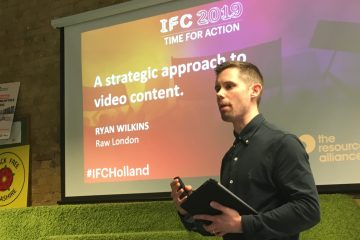What I learned about fundraising from the brazil nut
The brazil nut has an interesting story, even for non-botanists like me.
For starters, it’s a seed, not a nut, but that’s not really important. It grows on large trees with yellow flowers. Although their nectar is sweet, their coiled hoods make it difficult to get to. That is, unless you’re a long-tongued orchid bee.
As the name implies, this particular orchid bee has a penchant for orchids, so you might think that doesn’t really help the Brazil nut tree. But fortunately, there’s the orchid Coryanthes vasquezii that likes to hang around our friend the Brazil nut tree. The male bees are attracted to the orchid’s scent, the female bees follow the males, and females pollinate the Brazil nut tree.
It’s like a dance between three parties that rely on each other to exist. It’s not unique necessarily, but this symbiotic triangle dawned on me as a perfect example for fundraising.
Okay, get to the fundraising part already…
In the non-profit world, we have a complicated mix of stakeholders: the board, the communities we serve (many of which have complex needs in their own rights), partner NGOs, the brand, the volunteers…and, oh yeah, the supporters.
But the supporters are like the orchid bees.
Without them, each and every one of us would wither on the vine. We need them. So surely they play a part in how our organisations evolve over time, right?
Um, not always.
Sometimes fundraisers are the last to know what’s happening inside the organisation. Sometimes fundraising and supporters are just trying to catch up to the rest of the charity. Fundraising follows the lead from our programmes, but that means we inevitably relegate our donors to the backseat, too.
Easier said than done.
The fact is we deal in complex problems, from researching the cure for diseases to helping people out of poverty. Those who deliver our programmes make decisions based on research, inputs and outputs, KPIs and best practice. They understand the issues better than most laypeople. They know why some of those obvious common sense “solutions” don’t really work in real life.
There’s a good reason we don’t bow to public pressure. We have to stay true to what we know is right for the cause, regardless of whether it’s popular.
It might seem that we’re at an impasse, then.
Enter the fundraiser.
Like the orchid that brings the bee to the Brazil nut tree, the fundraiser is the vital link between the donor and the organisation. Our charities (Brazil nut tree) need us (orchids) only to attract those wonderful bees (donors).
Okay, so now what?
It isn’t easy, but there are ways fundraising can help our cultures evolve to be more donor-conscious.
1. Volunteer. Get involved in cross-departmental initiatives. Mingle in the kitchens. Most fundraisers need to spend their time – you guessed it – raising money, but senior managers can make their job a lot easier by making sure fundraisers are aware of and involved in what’s happening.
2. Share. Fundraisers need to understand what they’re raising money for so donors can understand what their money is doing. But similarly, everyone from service delivery to the board should understand that fundraising is a professional discipline in its own right. It’s strategic. It’s long-term. Cutting acquisition activity this year will cast a long shadow, and anyone in a position to make these kinds of decisions should understand that.
3. Evidence your claims. As fundraising is strategic, we usually have reasons for the decisions we make. In direct marketing, we test to verify what raises more net income, so we have a body of evidence at the ready. Senior managers and businesspeople respond well to these facts, so don’t hide your rationale. The more people outside of fundraising understand it is a real profession, the more they respect it. The more they respect fundraising, the more they respect both the fundraisers and the donors.
The more we appreciate the interplay between donors, fundraising and the causes we champion, the better the pieces fit together – like the brazil nut, the orchid and the bee.


0 Comments